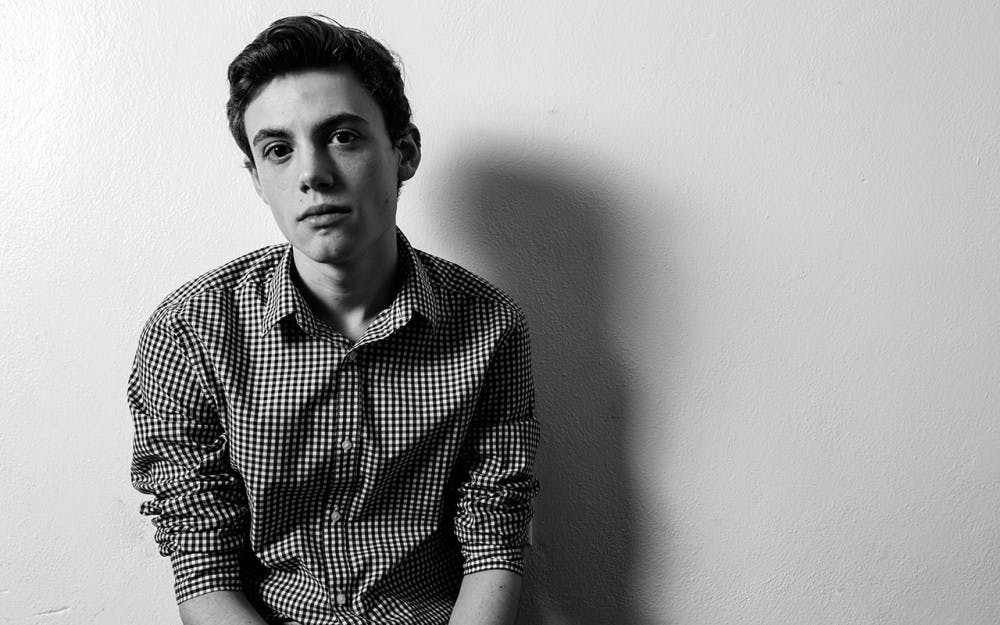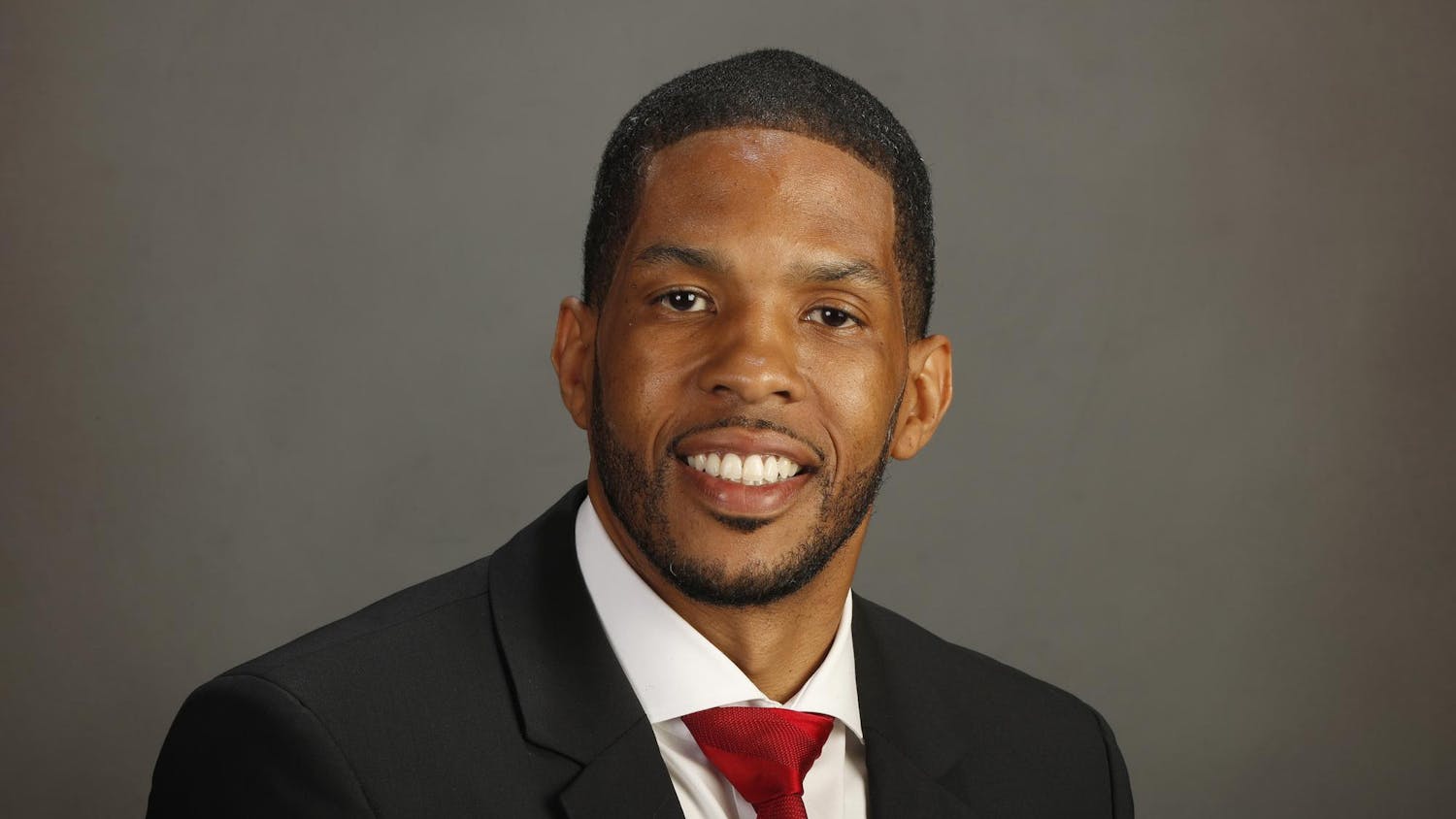After years of ignoring sexual misconduct, our world has finally started to listen to those who were unknown, unheard and, most of all, unsupported. We are quickly realizing that sexual misconduct, harassment and assault are, and have been, undeniably common.
I, like many, have spent the last year listening to others’ stories of sexual misconduct and learned from them.
The most important thing I discovered was there is nothing more powerful than sharing your story. Stories ignite conversation and have the potential to make real, meaningful change in our toxic culture.
After a year of listening and discussing others’ stories, I’ve decided to share a story of my own.
I’ve written it first and foremost for myself. Writing down my experience has helped me reflect and heal. I’ve also written it for others.
I’ve written it for other survivors because I want them to feel supported. I want them to know they are not alone and people are here for them.
I’ve written it for the public, so they can recognize and hopefully change how our culture allows for people to harass and harm others without any repercussions.
I’ve also written my story for the perpetrators, my own and others’, because I want them to recognize their own harmful actions and never behave similarly again.
The first step to changing our culture is recognizing how damaging it is.
Man up and get over it.
My experience started in spring 2017 on the track and field team of Bloomington High School North. It began with the classic homophobia that queer youth are often faced with.
Two male teammates had spent months teasing me, an openly bisexual teen, in what they might have seen as a harmless way. The two adolescent boys would pretend to flirt with me because they either thought it was funny or wanted to see a reaction from me. Or maybe both.
At first, I had just ignored their behavior. When the fake flirting persisted, I sarcastically over-exaggerated a reciprocated fake flirtation.
While I had expected that to make them uncomfortable and stop, it just fueled their behavior. They had gotten a reaction which is exactly what they wanted.
I never interacted with the two boys unless they interacted with me. I didn’t avoid them or tell them to stop and, honestly, I didn’t think much of it.
Although it is not right or fair, when you grow up as a queer kid you get used to dealing with homophobia on a daily basis. I had much bigger things to worry about. These boys’ insecurities about their sexuality and their masculinity had nothing to do with me.
Their behavior continued for months and I did nothing to combat it or report it.
Stop being such a fag.
One day before practice, I walked into the boys’ locker room to change for practice. The two boys followed me down the row of red lockers. They were whispering behind me and I remember questioning if they were talking about me or something else.
The hairs on my neck stood up and I felt uncomfortable. They followed me all the way to my locker, even though that’s not where they normally changed.
They stopped and stood about 7 feet away from me. Then they just watched as I changed into my running clothes. I did everything I could to ignore them.
I remember trying to convince myself it didn’t matter that they were looking at me. I tried to tell myself it was about them and they were the ones who were uncomfortable, but it did not work.
I felt objectified, used, humiliated and scared. But, most of all, I felt helpless. I felt weak. It was as if my mouth couldn’t open and my brain stopped working.
I’m used to speaking my mind and talking without fear, so this feeling was unusual and foreign to me. I did not know what was happening or what to do.
I continued trying to ignore him as I sat down on one of the benches in the locker room and leaned over to tie the laces of my blue and gray Asics tennis shoes.
After tying my shoes, I lifted my head up and one of the boy’s pants were unzipped displaying his flaccid penis.
Both of the boys broke into laughter. I made a face of surprise, which made them laugh more.
I continued to ignore them. The boy who had shown me his penis quickly covered himself. He mumbled something about not meaning for me to see his penis.
His explanation did not mean anything to me. I did not believe him. He meant for me to see it. He was not changing.
I continued to get ready and some more of the boys’ friends came over to where we were. None of them did anything to make the two boys stop.
Instead, the boys who harassed me invited their friends to play a game. In it they would compare the length and girth of their penises. The one with the largest penis would win. Laughing hysterically, they invited me to play.
Finally, I found my voice.
“For me being the one who likes men, this is a pretty fucking gay thing to do,” I said.
I rushed out of the locker room before I could see their reaction. I was afraid of being further bullied verbally and, even more so, physically. For the rest of the year, I avoided those boys at school.
Once again, I decided not to file a report or talk to my coach. Besides sharing my experience with the ones closest to me, I barely talked about it. I mostly wanted it to disappear.
Boys will be boys better.
Unfortunately, it did not disappear and it never will. What those boys did will affect me forever. When deciding if I wanted to share my story, I looked at the examples of others’ stories and was overwhelmed by the strength of those who have experienced sexual misconduct.
I remember how weak I felt in that locker room. Seeing other survivors’ strength and resilience is what led me to finally share my experience. I want to be strong like the many who have come forward and shared their stories.
Although I can never forgive those young boys for what they did to me, I don’t want justice. I want change.
This has to be a cultural change. This is deeper than adolescent boys behaving immaturely in a locker room. It’s deeper than one story or one experience. Sexual misconduct affects all of us. To prevent it from happening, we have to change our culture as a whole.
My experience is a result of the current culture we live in — a patriarchal one. I was born into a society that values men more than women.
The first time I realized this was when I was in first grade. A girl constantly teased me by calling me “girly boy.” I remember being genuinely upset, but I didn’t understand why until later.
Why was being “girly” a bad thing? I had plenty of friends who were girls. I’d always looked up to my mother and my sisters. I wouldn’t have been upset if I had been called “manly boy.” I was upset because I was taught that being feminine was bad.
I’m not the only person who was taught patriarchal values. It’s instilled in many of us at an early age. We learn by example.
In every aspect of life — movies, books, marriage, parenting, toys, relationships, jobs, school — it’s clear how often women are shown to be inferior to men, specifically white men.
We are taught that men are smart, strong, financially responsible, stoic and in control, while women are believed to be weak, unintelligent, emotional and submissive. Being feminine is seen as being inferior.
These images are problematic because they fuel sexism, racism and homophobia. They also contribute to a culture that permits sexual misconduct.
Men are taught to be dominant and are allowed to take whatever they want. This is why sexual misconduct is predominantly performed by men.
It’s perceived as normal, as expected. People think it’s natural and OK for men to behave inappropriately.
The saying “boys will be boys” encompasses this view. There’s no equivalent viewpoint for women’s behavior. Women are expected to behave respectfully, as well as handle the burden of men’s behavior.
I am thought of as less of a man simply because I am a bisexual man. For some reason, because I’m attracted to men I am categorized as being too feminine.
This is why those boys thought the way they treated me in the locker room was acceptable and why it was accepted by bystanders.
But we need to change that.
This starts by continuing the conversation on sexual misconduct. The more we talk about it, the more our culture will change.
We also need to teach children to think differently, act differently and to respect all people. It’s not right to accept sexual misconduct or the culture that allows it, but only people within our society can change our culture.
Editor's note: If you or someone you know has experienced sexual assault, help is available. IU-Bloomington provides a list of University and community resources on its website at stopsexualviolence.iu.edu.






